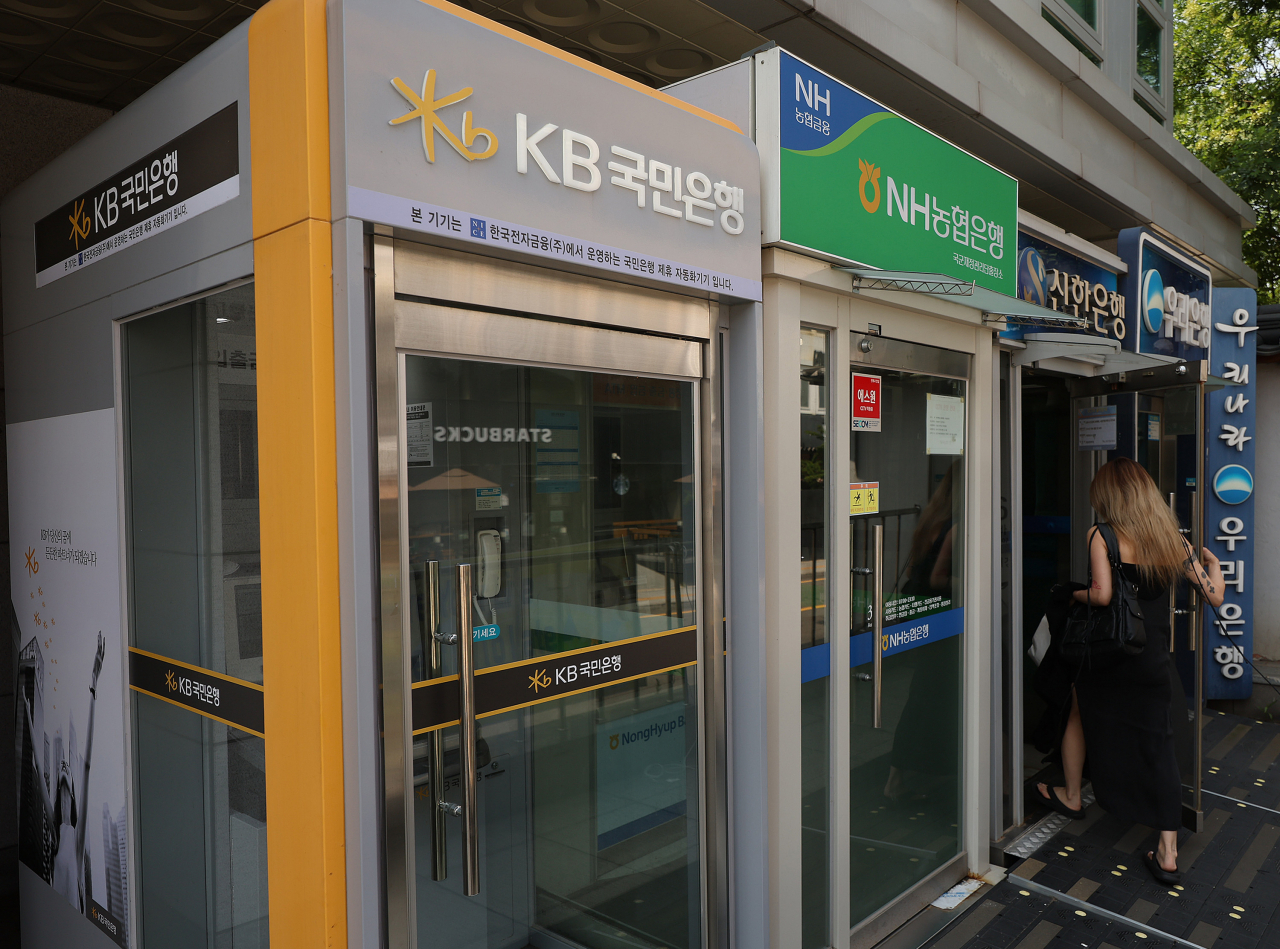
In downtown Seoul, major bank ATM booths are captured in a photograph. Data released on Tuesday indicates that the delinquency ratio on South Korean bank loans rose for the second consecutive month in May. Specifically, the delinquency ratio on won-denominated loans reached 0.51 percent at the end of May, marking a 0.03 percentage point increase from the previous month and a 0.15 percentage point rise from a year earlier. The newly overdue loans amounted to 2.7 trillion won in May, reflecting a 100 billion won increase from the prior month, while the resolved loans saw a 500 billion won increase to 2 trillion won during the same period. Furthermore, the delinquency ratio for corporate loans rose to 0.58 percent, up 0.04 percentage point from the previous month, while the ratio for household loans reached 0.42 percent, up 0.02 percentage point from April. The latest data reveals a concerning trend in South Korea's banking sector, as the delinquency ratio on bank loans continued to climb in May. Specifically, the delinquency ratio on won-denominated loans increased to 0.51 percent at the end of May, marking a 0.03 percentage point rise from the previous month and a 0.15 percentage point increase from a year earlier. The amount of newly overdue loans also saw a significant uptick, reaching 2.7 trillion won in May, up 100 billion won from the previous month, while resolved loans increased by 500 billion won to 2 trillion won during the same period. Moreover, the delinquency ratio for corporate loans rose to 0.58 percent, representing a 0.04 percentage point increase from the previous month, while the ratio for household loans stood at 0.42 percent, up 0.02 percentage point from April. These figures underscore the growing challenges faced by South Korean banks in managing loan delinquencies and highlight the potential impact on the overall financial stability of the country.
